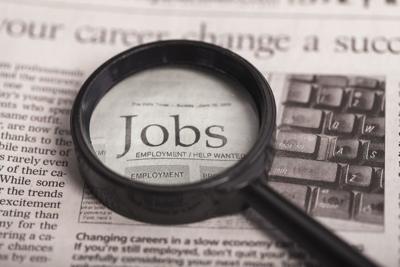Colorado's unemployment insurance database did not generate the personal identification numbers needed for claimants to request benefit payments, a glitch that affected an unknown number of the 81,000 claims filed since mid-March.
“You kind of have two different entry points. One is by phone where the agent can go right into the database,” said Cher Roybal Haavind, the deputy executive director of the Colorado Department of Labor and Employment. “The other is online, which basically holds it there and it needs to be moved over.”
The processing for applications submitted online, which involves transferring the claim from one database to another where the PIN generation occurs, did not happen in some instances.
“What we’ve done is taken those ones that are sitting there from online, and we’re simply going into the database and we’re putting them through in bulk,” said Haavind. “And trying to skip that human intervention step.”
For Rebecka Vigil of Arvada, human intervention was how she realized what happened to her claim. A laid-off table game dealer at a casino, she worked until 3 a.m. on St. Patrick’s Day, when her employer officially put her on furlough. She filled out the unemployment insurance application with her son, which took some effort due to the large volume of submissions.
“It kept kicking us out and giving us error messages and we kept fighting it and we got through it,” she said. Finally, she got the application submitted and received an e-mail confirmation.
After two weeks, she had not received the PIN, and she knew something was wrong. The CDLE website advises applicants that they will receive a PIN in the mail within seven days of successfully filing. The PIN is necessary to check the status of a claim and to request payment for benefits on Sundays.
On April 2, Vigil spent six hours waiting to speak to an agent at the department. She estimated she called over 200 times. When she got through, the agent told her that “by coincidence, somebody had caught that mine did not go through and had put it through — probably while I was trying to call them earlier. Other people, they had to go in and manually fix it.”
She said that the agent told her the occurrence was “rare,” but that for other people, “if you don't call, nothing will happen. You need to call and get them to put it back in.”
Online, support groups for those in various industries hit hard by layoffs have multiple threads commiserating about the non-issuance of PINs.
“I spoke with a gentleman this morning who said that the majority of applications haven't been transferred to their system which is why we haven't received a PIN,” said one commenter in a hospitality-focused Facebook group.
“I submitted mine on March 17th and received a confirmation number. Upon finally getting through to an agent he informed me that my application was received but never fully processed (their fault),” wrote another commenter. “Thankfully he processed it today with a back date.”
Those caught up in the process were quick to compliment the call center workers who straightened out their claims. “I could not say enough about how professional all the people were — and friendly,” said Vigil.
The labor department received approximately 225,000 call attempts on March 30. Haavind did not know how many of those were inquiries about their PIN, but she said that even before the pandemic, the most common calls were from people wondering about their benefits and their PINs.
Although the labor department knew about the failure to generate PINs, the incidents known to Colorado Politics involved applicants finding out only by calling in to the help line.
CDLE received approximately 30,000 applications from March 16-23. Attempts to access the online application that week grew to 114,000, up from 7,000 the week prior. As a result, the department added call center staff and instituted a system in which claimants could apply only on certain days of the week, depending upon their last name. Existing department employees were responsible for moving the applications to the PIN-generation stage, and Haavind said that the department hopes to automate that process.
Austin O’Neil was working at a hotel in downtown Denver when the first signs of the economic slowdown hit Denver. First, an 11,000-person convention scheduled for early March canceled the rooms booked for his hotel. Then the bar began running with a skeleton crew, with people calling out sick at the hint of any symptoms. On March 16, after Mayor Michael Hancock ordered bars and restaurants closed for dine-in service, management laid off the food and beverage department and advised people to apply for unemployment.
O’Neil said that his online application went through easily enough, but it took two and a half weeks to receive the PIN. “I tried calling the Department of Labor's unemployment line several times a day, but it always played a busy tone, or just hung up,” he said. Finally, on March 31, “I had to go through a different extension — the fraud/overpayments line — and beg the handler to help with my file.”
The call center employee said that his application and “many others” had gotten lost. “They had my file, but it didn't show up in the system for review until the day before I called,” O’Neil said. After the call, he received his PIN in two days.
Over the weekend, multiple people, including Vigil, received robocalls to inform them of their PIN. The department’s long-standing process was to mail the PINs because it was deemed the most secure means. The arrangement is not foolproof, however, as theft of the envelope would give a third party access to the PIN and the method of payment.
Haavind believed that a late-arriving PIN should not affect a claimant’s ability to receive the benefits to which they were entitled. Even if someone received their PIN after the first Sunday to request payment, the money would be added to future payments.
“Their benefit amount will be greater than it would have been had they been able to file with their PIN" on the first available date, she said. “And now they will be in a regular cadence of requesting benefits.”





 Your Privacy Choices
Your Privacy Choices